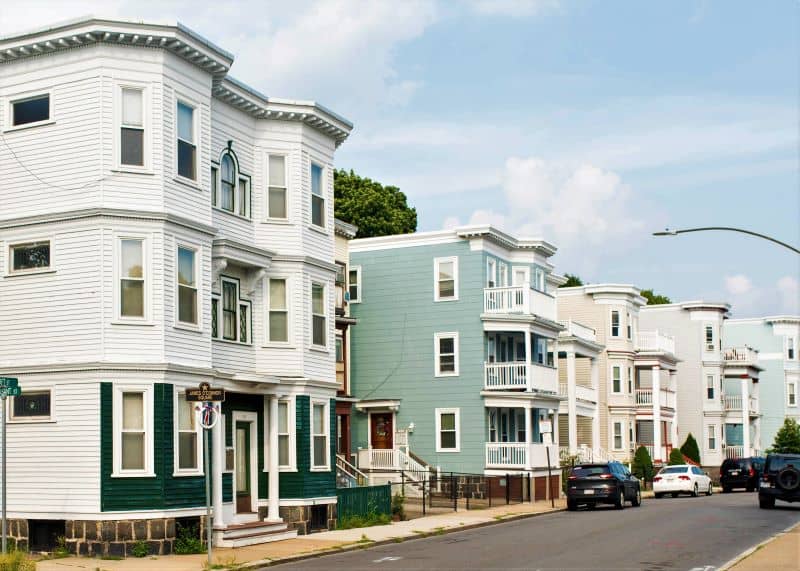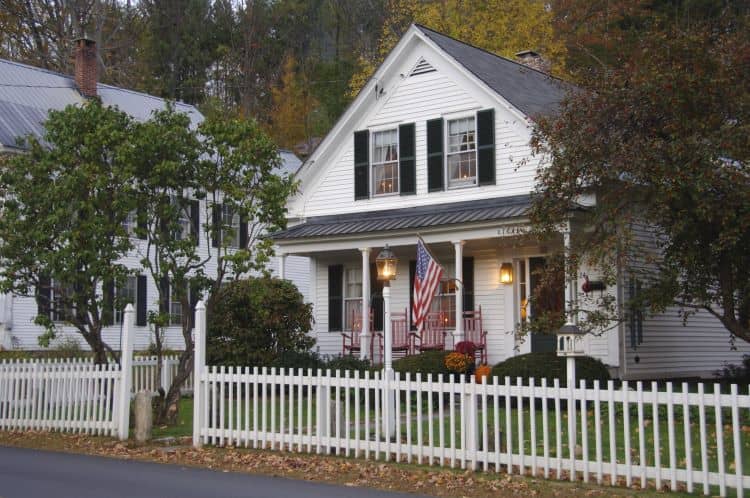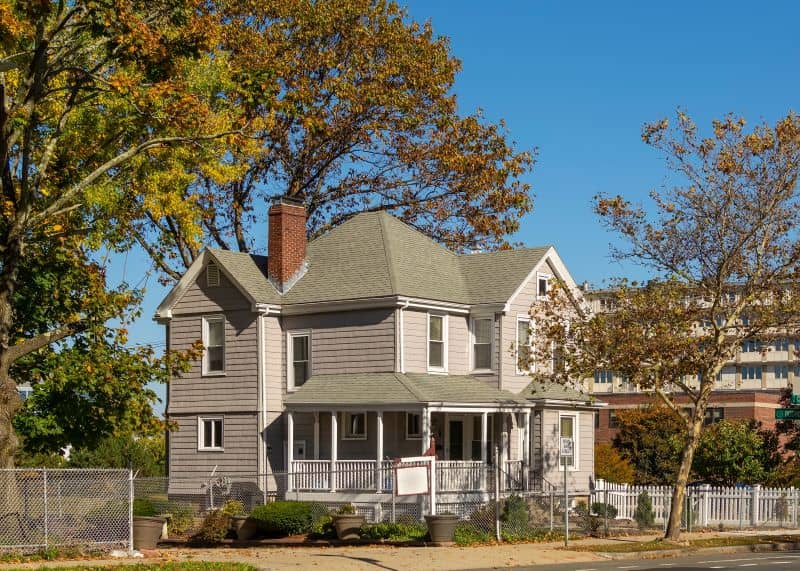
Investing is one of those things everyone should be taught from a young age. Whether in school or by witnessing elders, investing can lead to a secure financial future if done correctly. Knowing what to invest in is a whole other ball game. Real Estate investing has many forms. From condo to commercial, real estate investing may sound sexy, but it’s not for the uneducated who lack a game plan. Multifamily real estate investing can be especially enticing, but is it right for you?
The bright side is that we all have some form of basic understanding when it comes to multifamily real estate investing. If you’ve ever rented an apartment or lived at your parents’ house long enough, you know repairs and upgrades are needed, payments must be made, and that serious money is often needed for those repairs and improvements. We all have a fundamental understanding of real estate investing, we may just not recognize this fact. Of course, there is much more to digest before becoming an investor. It’s important to find a financial blueprint for the pros and cons of multifamily real estate investing.
If you want to figure out both short and long-term wealth creation that has helped thousands of people reach their financial goals-- read on!

What is a Multifamily Property?
A multifamily property is any property that has more than one unit. Two-family properties are the best way for first-time investors to test their tolerance to some additional variables that they may not witness while owning a single unit. Many investors begin with owner occupying a two or three family home. This simply means you live in one unit and rent the other unit/units to others.
Owner-occupied multifamily units have a ton of benefits, one being much better financing with lower interest rates and less initial money to put down to purchase. Living on-site allows the property owner/investor to be much more hands on. It also allows for the property to be self-managed, saving hundreds of dollars a year as opposed to hiring a property manager. Sometimes an investor will purchase a multifamily and hire a property manager to care for the property making the investor more hands off. This is more personal preference than anything else. Keep in mind, buying property may not be the right move for you- there are benefits to renting a Boston apartment instead of buying.
Larger multi-families of 4 units or more are considered commercial real estate. These properties typically qualify for a different type of financing, which is often more expensive. Multi-families can scale as large as hundreds to thousands of units. This includes high rise buildings, to mixed-use properties that consist of commercial on the first floor and residential housing units making up the floors above.

What are the Pros of Multifamily Real Estate Investing?
There are many benefits, including:
Cash Flow/Passive Income:
One of the reasons investors like multifamily real estate investing is the cash flow. Rents in a strong market like Boston and the surrounding areas are consistent and usually very easy to predict. In most two family or three family investments, the mortgage is easily paid by the renter/renters giving the owner a much lower payment each month or more than enough to cover and even have passive income. For example, if you purchase a $900,000 3 family and your mortgage payment is about $5,000 per month. You rent the second floor for $2,557 (the current average rent price for 1 bedrooms Boston) and the third floor for $3,205 (the current average rent price for 2 bedrooms in Boston). You are now covering the mortgage, and only have to concern yourself with the expenses of running the property.
Now let’s say you gradually increase these rents year over year. By year 5, you could easily be making money every month. Gaining more positive cash flow becomes even better when you move out of the first floor and rent all three units. Now you are really starting to leverage your asset into a money making vehicle. In fact, if you start saving that money you are getting from all three units, you will start making it even easier to purchase your next property.
Appreciation:
No one can predict the future but the best indication is the past. Long-term investors typically find that multi-families appreciate over time. Property purchased with strong indicators, in a consistent market, and well cared for nearly always to rise in value.
Potential Portfolio Growth:
Many investors start with a two or three family and are more able to grow their portfolios from there. One strategically purchased 2 family can lead to a second or third in a short period of time. For example, if you purchase a 2 family in 2017 for $450,000. You’ve lived in it for 3 years and it has increased in value. You benefited from lower down payment and a better interest rate since you purchased as an owner occupied property. You can leverage the equity from this home after a couple of years and purchase another 2/3 family home. In just four/five years, you could have 3 rental properties. Multi-families give you the best flexibility to scale your portfolio over commercial properties which have high barriers of entry.
Reduced Risk vs Commercial Properties:
Investing in multifamily properties is considered a “safer” investment than commercial properties such as retail or office buildings. During economic downturns like 2008-2009 and 2020, commercial spaces took the biggest hit. Business owners struggled to make an income forcing many to close their doors for good. Conversely, residential tends to remain stable even if for lowering rents. During these recessions many people sold their homes for a profit and rented cheaper apartments instead.
Retirement Plan:
Many investors find that after over several years, appreciation, and skills acquired, they are in position to live off of the income from their rental properties or sell and live comfortably. Allowing the renters to pay down mortgages and reduce an investors liability means that after ten to twenty years, income and assets can grow substantially. Deciding to spend more time on your real estate portfolio can mean less time worrying about your retirement plan.

What are the Cons of Multifamily Real Estate Investing?
Property Management:
For those looking to invest in multifamily property for the first time, the management of the property can be the deterrent. Property management can be outsourced but if you’re looking to eliminate that expense, learning to deal with tenants better be on your short list of skills to learn. Here is where most first-time investors stay just that, first time. Managing the property comes with a list of responsibilities from reviewing applications, running credit reports, employment verification, and drawing up leases. And that’s before they move in. The single most important goal of an investor is securing good tenants. One bad tenant can cause more headaches than you’re willing to deal with. Every investor should know that a multifamily property means dealing with leases, tenant relations, and request for tenant repairs. In a nutshell, owning multifamily properties is often far more labor intensive than commercial properties.
Market Competition:
When looking to invest in areas like Boston, one of the biggest draw backs for potential investors is other investors. The competition to purchase a multifamily home can be daunting. First time investors can be deterred by overcrowded open houses, multiple bid situations, and “all cash deals” experienced investors can offer. First-time investors are suited best to search for properties that are sitting on the market or going just a bit outside of the “more popular” areas. Even the slightest adjustment in your search for properties can prove beneficial. It can also take vision to view an older or non-performing property and think about how to reposition the asset to it’s full potential.

Is Multifamily Real Estate Investing Right for You?
Deciding to invest is not an easy decision. Many fail by not being prepared or not being aware of the potential pitfalls. The best advice I’ve heard is not to over think it. Inform yourself and make the decision. Analysis paralysis is a deadly killer of financial dreams. It’s best to start with a smaller multifamily but opportunity is key. If you have the opportunity to purchase larger property, you may not want to pass that up. Details make all the difference. You may want to consider getting your real estate license and learning about rentals and which styles and layouts bring the fastest for the highest price points.
For those who learn best by failing, self-managing may be the way to go. Deciding to hire a property manager can easily be answered by how fast you scale your portfolio. Owner occupied multi-families are usually better self-managed as your tenant will see you every day and may make it more difficult to introduce a property manager. It is easier to hire a property manager if the investor is not on-site. In other words, the more rental units you have, the more consideration you should put into hiring a property manager. If you find over time that your portfolio features too many smaller properties in different areas, you can consider a 1031 exchange. This will allow you to sell off the smaller properties and roll the proceeds into larger multifamily investments.
Multifamily Real Estate Investing Can Provide Big Opportunities
It should be lost on no one that 8 out of 10 millionaires have made their money through Real Estate. That said, the financial freedom blueprint has been laid out. The decision to follow it is yours, but you can’t deny the potential in multifamily real estate investing. It’s simply never too early to get started! You may contact us here for any of your real estate related needs. We look forward to working with you.

Josue Vargas
Published April 12, 2024
Transitioning to real estate sales in 2014, Josue's background in leasing provided an invaluable foundation. His profound understanding of Boston's diverse neighborhoods and market dynamics facilitated a seamless shift. Collaborating closely with seasoned agents at NextGen Realty, Josue swiftly emerged as a top-performing agent. Subsequently, he took charge of the office sales team, propelling NextGen Realty to achieve over 100 million dollars in gross sales transactions annually from 2017 to 2021. This continued success solidified the agency's position as a market leader in investment sales within and around Boston, courtesy of a vast investor network.
With over two decades of real estate expertise, Josue adeptly navigates the ever-evolving market, leveraging his insights to guide investors. His approach involves predominantly offline methods, recognized for uncovering off-market properties, coupled with an unwavering work ethic and an insatiable appetite for industry knowledge. Notably, this achievement culminated in a partnership with the esteemed Boston Pads Family and co-ownership of Douglas Paul Real Estate, underscoring Josue's stature and influence in the field.





